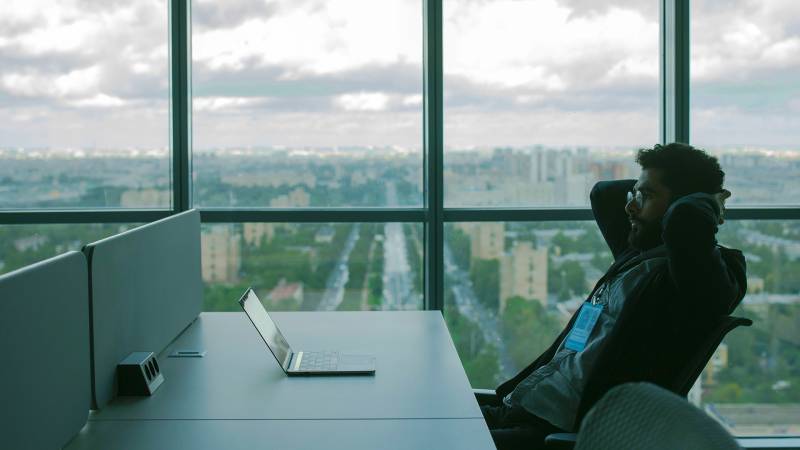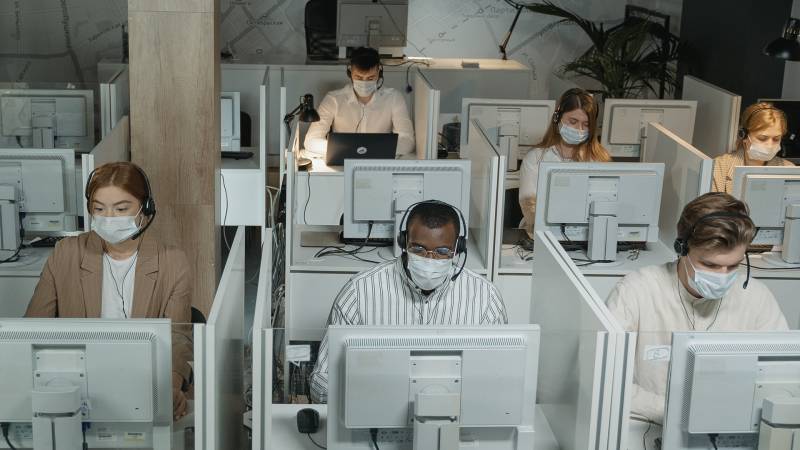The COVID-19 situation has forced many of our day-to-day lives to change significantly and has caused some or exacerbated existing mental health issues for all.
Before the pandemic, 89% of PR practitioners were struggling with mental health. This year’s World Mental Health Day is themed “Increased investment in mental health”.
World Mental Health Day is an opportunity for the world to come together and begin redressing the historical neglect of mental health.
We are already seeing the consequences of the COVID-19 pandemic on people’s mental well-being, and this is just the beginning. Unless we make serious commitments to scale up investment in mental health right now, the health, social and economic consequences will be far-reaching."
We asked our team’s perspectives on mental wellness in the communications industry- and how they manage their stress levels despite the difficulties they face in the industry

1. The PR industry is notorious for its hectic work life and negligence to mental health. What are the things you do to prevent a burn-out?
Jocelyn:
Everyone’s stress, life circumstances, and state of mental health are different. This means understanding your own body’s warning signs of possible burn-out and doing something to prevent that. Some of the things which have worked for me is to take some time off work every few months to recharge and spend doing fun things with the family. However, not everyone can get away. So, the weekends are essential to take these mental breaks to rest and get more exercise as the mind and body are closely interlinked.
Elvin:
Luckily, here at LivingWord Communications, our boss (Jocelyn Ng) takes work-life balance seriously, so I haven’t had a burn-out. I regularly meditate and exercise to ground myself and stay healthy, and I binge on Netflix and surf the web to unwind myself.
Joan:
Before COVID-19, when travelling was allowed, I would take overseas trips every 4-6 months. These days, I make it a point to exercise and set aside time to be away from work, be it swimming or evening walks with friends. During working hours, I like to take short breaks in between by, e.g. admiring my plants. I find it useful to peel away from the laptop and have a change of scene.

2. What do you think are the hurdles in why people who experience depression or other mental health issues do not share their condition with family/friends and their supervisors in the workplace? Why is there the need to hide or deny it?
Shawn:
A stark reason could be personal financial commitments/burdens that could be all linked to that job that we are holding on too tightly. Why is there the need to hide or deny it? For fear of losing out (that job) and being vulnerable (how others might think of you). For guys, it is the ego!
Kavita:
People do not take kindly to vulnerability or anything that spells weakness. Also, in a strait-laced society like Singapore, there is this double whammy of losing face or keeping things private and not messy. So, it becomes even more challenging to seek help. Judgement from the world can be a scary thing. It becomes even more so in a society such as ours or anywhere for that matter.
Thulasi
Discrimination, stigma. Fear of losing your job. Fear of being on long term medication to fix depression. Lack of emotional support from family and office. Lack of conversations around it. The list goes on honestly.

3. How do you think PR companies should better care for the mental health of its employees?
Jocelyn:
Employers can do more to check-in and take stock of their employees, especially in these times with more people working remotely. From an employee perspective, corporate culture is what differentiates one agency from another. As such, the leadership needs to set the tone of the company to care for its employees. This requires building a culture of honesty and trust to build two-way communication between the supervisor and the employee to create workplace flexibility for those who have struggles in this area.
Rui Qi:
PR companies can take time aside to do activities that can help relax and bond employees. Work should not just be solely about KPI.
Thulasi:
Create a comfortable environment to discuss personal issues like these, encourage employees to take one hour out of their working hours to hit the gym/ studios. Get some workout in during working hours. At the end of the week, employers should check-in with employees on their well-being.

4. What is one advice you would give to a struggling PR practitioner regarding their mental well-being?
Joan:
Start by speaking to someone he/she trusts, preferably one can understand the unique set of challenges faced in the industry. I say that because people who are outside of PR may not be able to relate and can end up frustrating rather than helping the person who is seeking help. A lot of times the person listening thinks what is needed is solutions, BUT at times, that is not what the person is after. So, either party can better manage expectations by clarifying if what is needed is listening ear or offering of solutions. I believe the person usually knows what the problem is and what needs to be done, but reasons are holding him/her back.
Rui Qi:
If you feel like you need some time off, take it. Everyone has once experienced burn-out. Don’t be ashamed to admit it.
Thulasi:
My colleague once told the team, it’s PR, not ER. So, unless somebody is dying, work is not so urgent where you have to put in long hours. However, to truly understand this, it comes with a particular maturity, right? For a fresh graduate, it’s about proving something and working hard. For seasoned practitioners, you start to find a balance. For me, it begins with the company culture, choose a place that puts employee well-being first. Ask those questions during your interview.

5. Whose responsibility is it for one’s personal mental wellness in the workplace? The employer or the employee or both? Why?
Shawn:
Why? I believe in whichever and whatever circumstance we are in, it takes “both hands to clap!” To create a conducive and productive work environment should be the uppermost agenda of the employer. Employees individually have to manage their expectations and contentment. “We don’t owe each other a living.” A happy workplace is made up of fulfilled employees and vice-versa.
Kavita:
The primary purpose of business is to make a profit and employees are part of the cog machine to achieve this. However, this is the old narrative. Businesses now need to redefine themselves to be more holistic and to collaborate with the world of human values for a new world of organized behaviour. This means exercising greater compassion in the workplace. Both the employee and the employer are responsible. We have to come together for a more caring social and collaborative business structure where everyone matters – from the toilet cleaning lady to the founder/CEO.
Elvin:
I would say the employer. Ordinary workers like us have signed a work contract before working in a company; the power is therefore in their hands. It’s those in power which should make meaningful changes which will then influence the rest of the organization.
Anyone can experience a decline in our emotional or psychological well-being with regards to issues in school, work, or home. Do not be afraid to reach out to talk to someone. You can reach out to the National Care Hotline at 1800-202-6868. They operate daily from 8am to 12am daily. Click here for more information.
